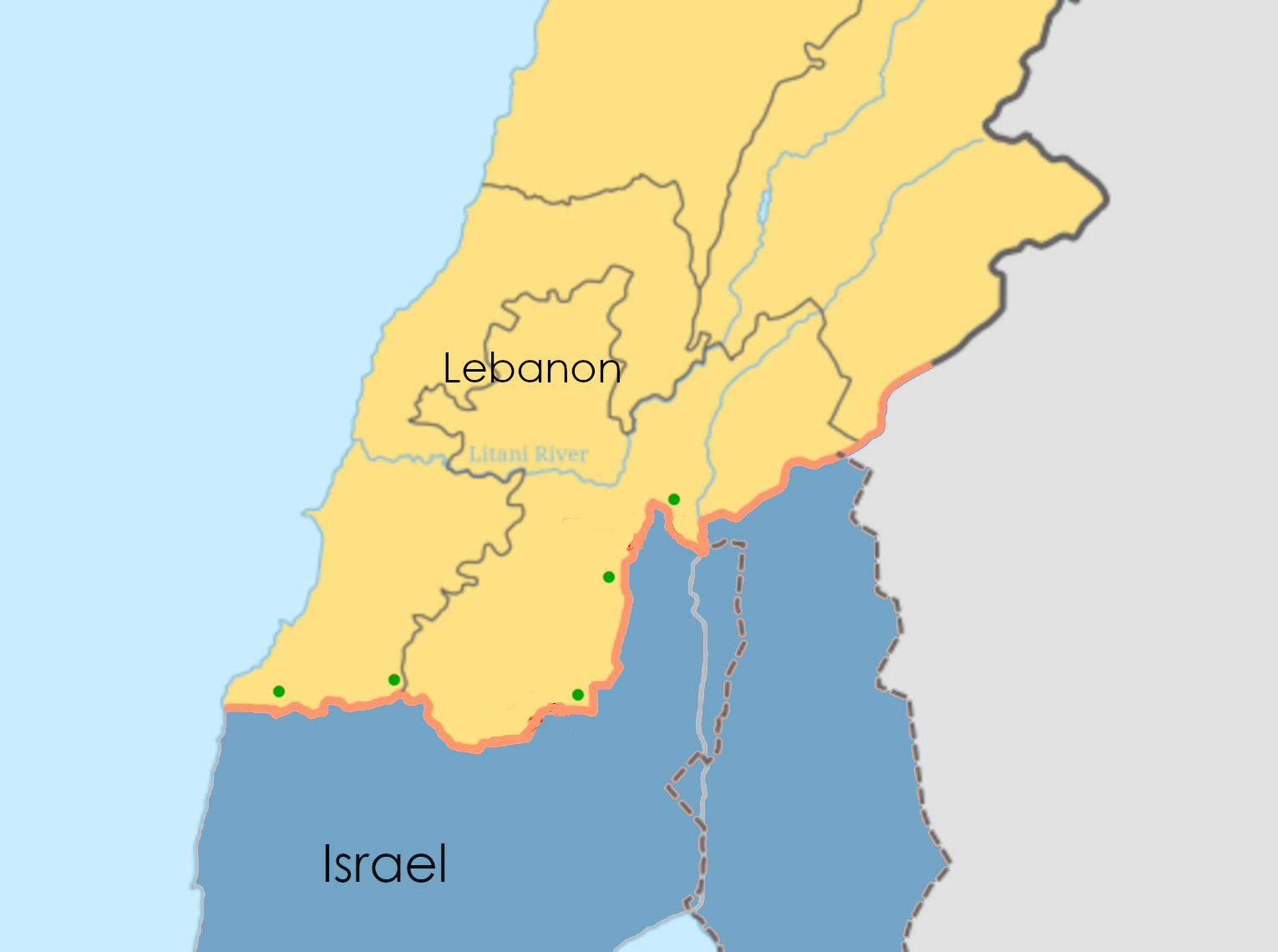The extended deadline of the Lebanon ceasefire has come and gone, and as previously confirmed, Israeli troops only left populated areas, but remained in southern Lebanon at five hilltop surveillance posts that the IDF established in the weeks leading up to the deadline.
Lebanon did not accept the extension of the deadline beyond February 18, and President Joseph Aoun is reportedly in contact with both the US and France, main guarantors of the now-expired ceasefire, to do something to press Israel to withdraw.
Both France and the US have submitted proposals to replace Israeli occupation forces, though neither appears to actually end the presence of foreign fighters on southern Lebanese soil. France offered to replace the Israeli troops at the IDF-built outposts with French troops, an idea which Israel quickly rejected.

Map of Israel Lebanon border. Green circles indicate the five outposts Israel continues to occupy.
The US proposal appears quite different. A US diplomatic source was quoted as saying America was proposing to send private military contractors to man the IDF posts instead of Israeli forces. Lebanon is said to have opposed this suggestion.
The US proposal appears to mirror what has happened in the Gaza Strip, where US military contractors, many of them former veterans of the American military, are operating a checkpoint. The checkpoint is reportedly in the Netzarim corridor.
Last week, Israeli troops withdrew from that corridor, which bisects Gaza. The US contractors remain though, and Gazans trying to pass through the area to return home were warned they’d still be subject to search by the Americans.
Lebanese civil defense personnel are returning to the southern villages that Israel has left, however, and some measure of normalcy may ultimately be able to return there. The Lebanese have reported recovering at least 23 bodies already from border villages, the majority from Mays al-Jabal. As troops and civilians return to more villages, it is likely that number will continue to rise.
A still open question is whether the end of the ceasefire between Israel and Lebanon will in any way impact Israeli military attacks inside Lebanon. Israeli troops have shot and killed dozens of Lebanese trying to return to their homes, and though they’re not inside the villages themselves anymore, it is uncertain if they will continue to try to keep people from returning home.


